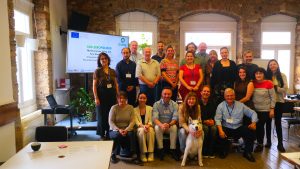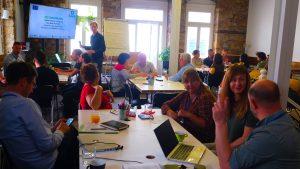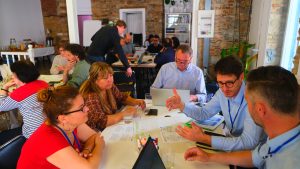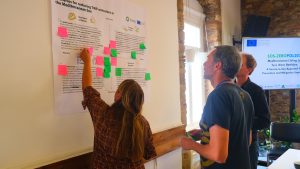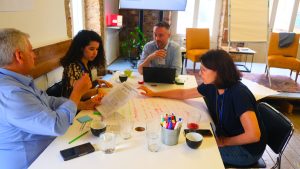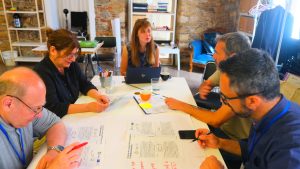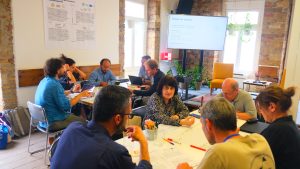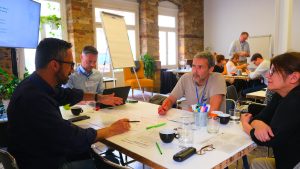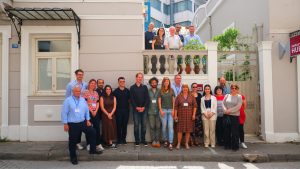The 2nd edition of the SOS-ZEROPOL2030 Mediterranean Living Lab took place in Athens on 6-7 May 2025, bringing together key stakeholders to explore effective strategies for reducing car tyre particle emissions across the entire product chain. Organized by the Mediterranean Information Office for Environment, Culture, and Sustainable Development (MIO-ECSDE) in partnership with SOS-ZEROPOL2030 project partners, the event advanced regional efforts to address one of the most pervasive and overlooked sources of microplastic pollution: tyre wear particles (TWPs).
This second edition of the Living Lab focused on evaluating scenarios for the prevention and reduction of TWPs, with particular attention to eco-design approaches for car tyres and the removal of TWPs in wastewater treatment plants. Building on the key findings from the first Mediterranean Living Lab in November 2024, participants explored, through a collaborative SWOT (Strengths, Weaknesses, Opportunities, Threats) analysis, the feasibility and impact of four future scenarios for preventing and mitigating tyre wear particle emissions. These scenarios were structured around two critical axes: responsibility—ranging from private-sector-led to public-sector-driven solutions—and approach, spanning from reactive measures to proactive interventions.
“It’s always exciting to see how people with diverse perspectives, experiences, and interests can, at the end of the day, come together with a shared vision on how the complexities of tyre wear particle pollution should be addressed. The Living Lab and its scenario-based approach allowed us to explore how different governance models and levels of ambition could drive effective, system-wide responses—ranging from voluntary industry innovation to public-sector regulation. It truly opened the door for honest, forward-looking dialogue on what is feasible and necessary,” says Thomais Vlachogianni, Mediterranean Regional Lead of the SOS-ZEROPOL2030 project and Head of Science, Research & Policy at MIO-ECSDE.
The Living Lab gathered a diverse group of policy and decision-makers, industry representatives, researchers and academics, civil society representatives, and service providers from 13 Mediterranean and other EU Member States. The event facilitated cross-sector dialogue and fostered a shared understanding of how to drive forward effective and sustainable solutions to tyre-related microplastic pollution.
The outcomes of both Living Labs will inform a set of policy recommendations to the European Commission, contributing to the EU’s broader agenda to combat microplastic pollution and protect European marine ecosystems.
Read this in French here
